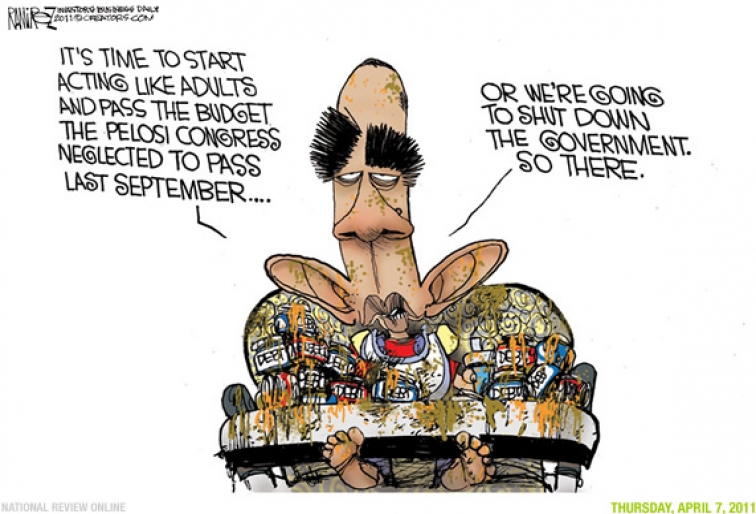Sequester Kabuki
There’s no question that the forthcoming federal spending cuts under the sequester aren’t ideal, particularly given the indiscriminate way in which they’ll be applied. Republicans in Congress, however, have rightly determined that indelicate cuts are a better option than a compromise that does little or nothing to arrest the trajectory of our debt crisis (even if they haven’t quite worked out the messaging yet).
Standing firm on that principle means accepting some pretty large cuts to defense, but as Byron York notes in a must-read column for the Washington Examiner, the Pentagon is going out of its way to make the situation seem much worse than it really is:
… Over many decades of defense budget battles, the Pentagon has often used a tactic known as a “gold watch.” It means to answer a budget cut proposal by selecting for elimination a program so important and valued — a gold watch — that Pentagon chiefs know political leaders will restore funding rather than go through with the cut.
So now, with sequestration approaching, the Pentagon has announced that the possibility of budget cuts has forced the Navy to delay deployment of the carrier USS Harry S. Truman to the Persian Gulf. With tensions with Iran as high as they’ve ever been, that would leave the U.S. with just one carrier, instead of the preferred two, in that deeply troubled region.
“Already, the threat of these cuts has forced the Navy to delay an aircraft carrier that was supposed to deploy to the Persian Gulf,” Obama said at a White House appearance on Tuesday, in case anyone missed the news.
Some military analysts were immediately suspicious. “A total gold watch,” said one retired general officer who asked not to be named. Military commentator and retired Army Lt. Col. Ralph Peters called the Navy’s move “ostentatious,” comparing it to “Donald Trump claiming he can’t afford a cab.”
… Meanwhile, with a budget higher than it was even at the peak of the Iraq and Afghanistan wars, the Pentagon is resisting attempts to force it to audit its own finances. Congress passed a law back in 1990 requiring such an audit, to no avail. Last year, Sens. Tom Coburn, R-Okla., and Joe Manchin, D-W.Va., introduced the Audit the Pentagon Act, which would try again to force a look inside the maze of Pentagon spending.
Now, with the Defense Department sounding the alarm about sequestration, some budget hawks on Capitol Hill are doubtful. “It’s difficult to take these doomsday scenarios seriously when the Pentagon can’t even audit its own books,” says a spokesman for Coburn. “We would argue that the Defense Department has the authority to reprioritize funding toward vital needs and away from less vital spending. As Sen. Coburn has detailed, the department spends nearly $70 billion each year on ‘nondefense’ defense spending that has nothing to do with our national security.”
Yes, the Pentagon does represent some of the most vital spending that takes place in Washington. But conservatives especially should remember that it remains, on many levels, a conventional bureaucracy, prone to defend well-established power centers and jealous of every dollar that comes its way.
The goals of cutting spending and preserving national security are not mutually exclusive.


 CFIF Freedom Line Blog RSS Feed
CFIF Freedom Line Blog RSS Feed CFIF on Twitter
CFIF on Twitter CFIF on YouTube
CFIF on YouTube